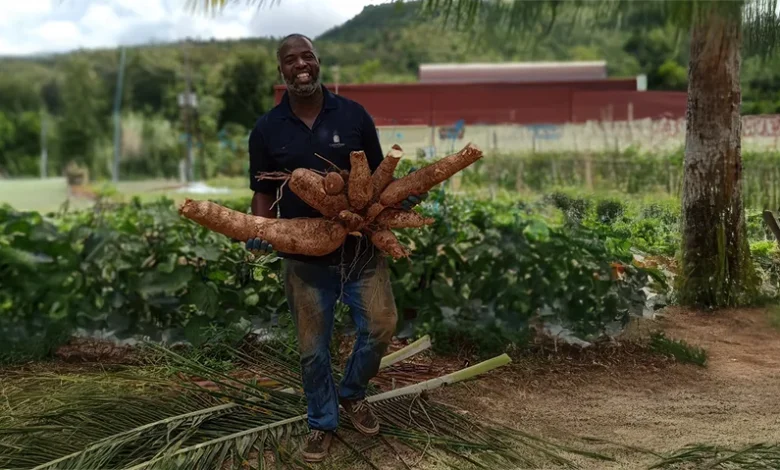Food and Agriculture Organization (FAO) in Dominica

The Food and Agriculture Organization (FAO) has played a vital role in supporting Dominica’s agricultural development, food security, and environmental resilience. As a specialized agency of the United Nations, the FAO has collaborated with the Dominica government to enhance sustainable agricultural practices, boost rural livelihoods, and address the challenges posed by climate change and natural disasters.
Partnership with Dominica’s Agricultural Sector
The FAO has been instrumental in modernizing Dominica’s agricultural sector. Through partnerships with the Ministry of Agriculture, Fisheries, Blue and Green Economy, the FAO has implemented projects to improve productivity, reduce vulnerability to extreme weather, and increase resilience in farming communities. Initiatives such as climate-smart agriculture training, irrigation system enhancements, and pest management programs have transformed Dominica’s farming landscape.
One notable project is the Emergency Agricultural Livelihoods and Climate Resilience Project, which supported farmers and fishers affected by Hurricane Maria in 2017. This initiative delivered seeds, fertilizers, and equipment to restore agricultural production and safeguard food security.
Promoting Food Security and Nutrition
Dominica has benefited from the FAO’s global expertise in addressing food security and nutrition challenges. The organization has supported programs that encourage the consumption of locally grown food, reduce reliance on imports, and promote sustainable farming practices. School feeding programs, funded partly by the FAO, have incorporated local produce, helping children access nutritious meals while supporting local farmers.
The FAO has also worked with the Dominica Export Import Agency (DEXIA) to enhance the marketing of agricultural products, ensuring farmers can reach broader markets and achieve better prices for their goods.
Environmental and Climate Resilience Initiatives
Given Dominica’s vulnerability to climate change, the FAO has prioritized initiatives that bolster environmental sustainability. Projects have included reforestation efforts, watershed management, and training in sustainable land-use practices. The FAO has also contributed to preserving Dominica’s biodiversity by promoting agroforestry and conserving habitats for endemic species such as the Sisserou Parrot and the Jaco Parrot.
The FAO’s technical assistance has enabled Dominica to adopt climate-resilient crops and innovative farming methods, such as drip irrigation and greenhouse technology, which reduce the impact of erratic rainfall and other climate-related challenges.
Collaboration with Local Communities and Stakeholders
Collaboration with local communities and organizations has been central to the FAO’s work in Dominica. Partnering with groups like the Dominica Organic Agriculture Movement (DOAM) and the Dominica National Fair Trade Organization (DNFTO), the FAO has promoted organic farming and fair trade practices that enhance farmers’ incomes and promote sustainability.
Government bodies such as the National Land Use Committee have worked closely with the FAO to ensure that agricultural policies align with environmental preservation goals and the country’s broader development strategy.
Future Prospects and Goals
The FAO remains committed to supporting Dominica’s agricultural transformation. Plans for future collaboration include:
- Expanding access to modern agricultural technology and training.
- Scaling up agro-processing to add value to raw products.
- Strengthening food security by reducing post-harvest losses and enhancing storage facilities.
- Supporting Dominica’s efforts to achieve its Sustainable Agricultural Development Goals and transition to a fully organic agricultural system.
Impact and Global Significance
Dominica’s partnership with the FAO highlights the importance of international cooperation in achieving sustainable development. Dominica has advanced its position as a leader in sustainable agriculture and climate resilience in the Caribbean by leveraging FAO expertise. These efforts have benefited local farmers and fishers and contributed to global goals for reducing hunger, protecting biodiversity, and combating climate change.
The Food and Agriculture Organization continues to play a critical role in ensuring that Dominica’s agricultural sector remains resilient, productive, and aligned with the island’s commitment to sustainability and environmental stewardship.




